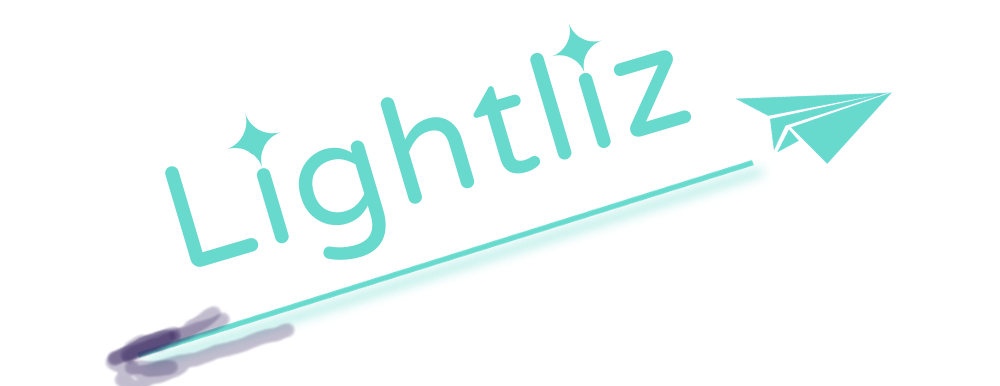Writing online is one of the best ways to build your long-lasting, creative business. You don’t need to expose yourself to a camera. No fancy gears are necessary, either. Grab your laptop and spread the word by publishing valuable articles, stories, posts, tweets, and threads.
The craft of writing is more accessible than you might think. While you must practice writing a lot to build a significant audience and earn money, it doesn’t require you to be J.K Rowling.
Unlike traditional writing of books and newspaper articles, everyone can gradually build a brand by writing online.
Don’t overcomplicate things. Consistency is what sets apart writers from wannabes. Nothing can stop you if you start writing online, practice a lot, and show up consistently.
Now, there are lots of approaches to get there. Mine is self-discovery. Tuning my creative energy as I grew online helped me be a consistent writer, learn how to stand out as a creator, and provide unique value to my audience.
The primary way to obtain such things is to spot your ideal writing energy and embrace the writing process. Read on to see what I mean.
Disclaimer : The information provided in this article is for educational purposes only, and doesn’t substitute professional advice. Results may vary. The article may contain affiliate links. See the full disclaimer for more details.
The benefits of writing online
I started writing online 4 years ago and progressed from freelancing to writing on Medium.com and two WordPress blogs.
Writing has changed my life. It helped me, first and foremost, build my side hustle online. That is meaningful for me as I constantly sought something of my own to help others, change lives, and earn some bucks.
5 years ago, I was going through a rough time and felt lost. I felt terrible emotionally and physically as I quit my employee job and failed to get funding for my post-graduate studies.
I had no clear direction in my mid-30s. All those around me progressed in life while I felt stuck and resentful.
After a prolonged journey of self-discovery, I started writing online by freelancing and then for my brand. I’ve been writing on my blog for almost two years and, more recently, on Medium. I can say that writing on these platforms helped me clear myself and gave me direction.
I’ve realized precisely what I want to do with my life and brand through writing. That consists of core questions like who my audience is and what topics I should focus on. It became clear to me what strengths and values make my brand.
Writing helps you clear up yourself and become a more articulate person. It makes you a creative person you are proud of instead of a mediocre dude who consumes social media in his free time.
I’m still far from reaching the success level of online writers like Mark Manson, Tim Denning, and Nicolas Cole, yet I see how I’m a different person than the one I used to be before writing online.
The key takeaway is that writing helps you grow as a creator and person.
But why bother writing anyway? We have AI

I know what you are thinking right now. Why the heck should you sit in front of that blank page and struggle? You can use ChatGPT, Bard, or one of the many other AI tools for the entire writing process.
Well, that is half of the truth. Ai writing tools are tremendous and revolutionary indeed. Yet, they’re still tools and not a substitute for human writing (yet).
Pay attention to the issues associated with any generated content. There are occasional factual errors, the language sounds formal (and hence dull), and the generated stories might be cool but often unrelatable.
While more sophisticated prompts can significantly improve the generated outputs 1, they can’t compete with the soul you put in your words. I mean the nuances in human writing that make your stories and insights relevant and relatable.
You can use the tool for the first draft, but then you must tweak it, synthesize your ideas, and make it your own.
Your original bullet points to solve a specific problem are critical. They make your blog post original and helpful, as required by Google’s recent helpful content update.
While you might see some of Google’s traffic with exclusive AI-generated content in a few super low-competition niches, you’d need to provide real-life experiences, original ideas, and personal input in most niches.
The higher the topic competition, the less likely to rank your AI blog post in search.
You must provide your unique, real-life value to survive the ongoing Google algorithm updates that have become more frequent than they used to be 2.
Besides, how would you cultivate your skills and personality as a content creator if you rely exclusively on auto-generated content? What is your value under an ai content? Even if you hit the mark somehow with exclusive AI content and even survive the algo, what is the point of generating such spanned content?
Check my article on the impact of AI on blogging and Google. It was published in January 2022, meaning it doesn’t reference Bing AI chat and the upcoming Google Search Generative Experience (SGE). Nevertheless, this guide has much value and is still relevant today.
So, as we understand your unique value as a human writer, let’s briefly overview your online writing opportunities.
Repurpose your content efficiently to win the game
Writing your original solutions and ideas in the content is critical for your content reach – especially on Google, but also in social media. That is not to say you shouldn’t use AI tools to streamline your creation work.
Ai tools are super handy for repurposing your primary content into other types of content and, by doing so, 10x your traffic.
AI tools help you to repurpose your content more quickly. As a content creator, you want to grow your online presence as much as possible. For example, you can use an AI plugin like Harpa.ai to create a blog post based on a YouTube video you made (don’t copy others!), which is cool.
If you are a blogger like me or want to become one, the best use of tools like Harpa.ai is repurposing your successful how-to blog posts into Twitter threads.
That can save you hours of work. As said, you’ll still need to tune the outputs and make them your own. This is important to attract people to the tips series you offer in the thread.
As a rule of thumb, I prefer repurposing long-form content into several short content posts or tweets instead of the opposite.
The reason for that is two-fold. First, you keep more of your work this way, whereas it’s less original and fresh content when the AI tool generates a long blog post from your short tweet. Second, my primary work energy is deep diving, so naturally, long blog post guides have become my primary content.
It can be different for you. If you are a short-form content kind of dude, you’ll repurpose threads into how-to guides or newsletters to your list. The merit is the quick data points you get in advance on your content. You get comments, likes, and shares in the first hours and days compared to months on Google.
But how do you know what your content creation approach should be?
Well, this is where the self-discovery magic happens. Keep reading to see how to figure out your writing energy.
Connect with your writing energy

The truth is that you can grow online by writing in so many ways. No guru can tell you how exactly to do it as they don’t know YOU. You are the one who can determine the right creation approach by understanding yourself well and experimenting with different writing forms and styles.
In other words, I want you to explore online writing opportunities through the self-discovery lens. This means examining the best creative options concerning your primary work energy.
So, let’s speak of your work energy. My approach here is inspired by the self-help book “The Work Energy” (Amazon) by Jim Harmer. In his book, he tells you how to reach any goal you have by dialing in your work energy. Instead of being concerned with your work title/field/niche, discover your work’s nature first.
If you are a deep dive like me, you would like to consider blogging. To rank on Google, you must enjoy producing long-form content, which means 2000 words at the minimum for most low-mid competition keywords.
You might consider moving to social media writing if you are a sharp person, a doer, or it feels too heavy to write long guides consistently.
Blogging on your site also means researching the web thoroughly, using AI tools and old-school manual research through your competitor’s blog posts and scientific articles to master the topic.
If your writing’s primary energy is more of short form, then it would be more appealing to grow on Twitter or Threads.
If you prefer to create middle-size content or combine long and short-form content, consider LinkedIn and Medium (more on the latter at the end).
The key takeaway from all that is playing the long game.
Writing online requires consistency. You need to show up daily or at least weekly for years. To reach that consistency, you must dial in your writing energy.
If you play the wrong game, it would be challenging to keep writing constantly. You have to enjoy the creation process, at least to some degree.
Now, another vital aspect of your writing energy is the passiveness level of your content. This one is critical to pay attention to.
Set your desired passiveness level

This is an underrated aspect of writing online. It should be among your top priorities when choosing your platform combo and the type of content you produce.
By passiveness, I don’t mean chilling on the beach with a cocktail at hand and watching your bucks roll. Forget that. It doesn’t exist. What I mean here is working hard on extensive content once and letting it do the job for you passively.
If you are like me and want to go above and beyond in your writing, you’d like to produce content with longevity.
I prefer to write a few long-form pieces of content that bring me constant traffic for years than numerous short-form pieces of content that boost my following but get buried a week later.
In other words, writing a 2500-word blog post that ranks 1 in Google for a mid-competition keyword seems way more attractive to me than getting thousands of views from 100 short buzz tweets. Nonetheless, it’s personal, and numerous successful online writers rely upon the opposite writing energy.
Of course, you could do long and short-form writing simultaneously when you grow, but at least at the start, I recommend devoting yourself to one type of writing.
Think also about what you write about. Is it a trendy new gadget you review or evergreen content like how to find purpose in life? The latter is just an example from my self-discovery blog. Naturally, yours might be different, but you’ve got the point.
It all depends on your work energy – whether you are a deep dive focused on one project at a time or a doer who quickly gets multiple things done. This is just one aspect of deciding how to approach writing. Many other factors exist, but I don’t want to overwhelm you now.
Make time to write
One common issue among aspiring writers is they can’t find time to write, whether it’s your busy day at work, friends who call, the distracting social media news feeds, daily errands, etc.
We are all busy and distracted, but you need to dedicate time in your day to writing. It could be in the morning before work, at lunchtime, or in the evening. Even publishing one paragraph in your blog post or short tweet is excellent if you have a busy day.
It’s also about finding a quiet environment and using productivity apps to make it easier to start writing and avoid distractions.
I use Clickup to organize my writing tasks. It’s a handy app to list content ideas and mark them by their work status (e.g., research, writing, editing, published) so I’ll know my progress. Psychologically, that helps me be more efficient with my time and keep writing towards my goals, and the best part is it’s free!
I made a list for each content platform I work on – My primary blog, niche site, Medium account, etc. ClickUp allows you to tag your tasks, filter your work, and cluster your content. That helps you stay on track and observe your progress.
However, project management apps like Clickup are not enough. You must detach yourself from social media and news sites for focused creation vibes. I use the app “Stay Focused” to block me from scrolling in my mobile feeds and the “LeechBlock” Chrome extension to block my frequently visited websites on my desktop. Both apps are free. For more details on these two apps, check this guide.
9 Actionable tips to start writing online
On top of the steps I outlined to become a consistent online writer, here are seven actionable tips to help you get started.
1. Your audience is you in the past

There is a lot of advice saying you must learn your audience first. I say screw that, at least at the start. Begin with your hero journey – target the people who now struggle with the problem you were wrestling with (and hopefully you solved it by now).
This way, you intuitively know your audience’s pain points, desires, and challenges, so you don’t need to explore Facebook groups and use polls. Understanding your readers’ interests and needs firsthand can help you efficiently tailor your content and build a loyal following.
To be more concrete and build topic authority, you can use the Google search bar and the “also asked” section under each result to see what queries people actually look for. You can supplement that with the free tool “Answer the Public” to find even more questions people ask on your topic.
2. Tell stories your audience can relate with
If I see just facts and a tedious description of a blog post, I would lose interest fast. You don’t want that to happen with your readers.
Instead, tell stories that are relevant to the topic. That doesn’t mean talking randomly about your day. Your tasty lunch with your friend in the shopping mall will not interest your readers (maybe if you have a recipe blog).
Tell a story your audience can relate to regarding the problem you help them with within the post. It can be short stories to spice up your how-to guide intro or the hero story to serve your solution interestingly.
3. Be curious
I’m curious, not just when researching a blog topic but generally in life. I enjoy discovering new facts, methods, and techniques to improve my life. However, I believe everyone is a curious creature to some degree. So, let it lead your writing.
That’s highly relevant to blogging, but being curious upgrades any content. It has better value when you go below generic advice and come up with specific facts from a study or exciting experiences of others.
Research your chosen topic, interview experts, explore different perspectives, and compile that with your own experiences. This balance fuels your writing with fresh insights and keeps readers engaged.
4. Find your voice

Instead of trying to perfect your writing, treat writing online as a playing ground. You can’t have a solid, unique voice when you start. I mean, you have your voice as a person, but there is still work to be done until it becomes coherent and valuable to your readers.
It took me years of practice until I found my way to serve my content. I’m still progressing, and it isn’t easy as I’m not a native speaker. But here I am, crafting this guide to help you start writing online.
Your voice is, first and foremost, the style you use to serve your content. It’s the personality reflected in your words. You could be a humorist in your writing, curse a lot (this one has become trendy lately), be vulnerable, be more philosophical, or be straightforward.
However, your voice is not only your writing style but also about how coherent and valuable your content is, I mean substantially. Your expertise in the chosen niche, how original your opinions are, and how much of your advice is helpful.
So, experiment with topics, tone, style, and personality. Don’t beat yourself up. It takes time to find your place. Read other writers you admire, and through time and experience, you will assemble your unique voice.
5. Embrace the edit
I know this one is a bit intimidating. You might have the image of a professional magazine editor who evaluates and organizes the work of his writers. Yet self-editing is not that. It’s an inherent part of the writing process.
Writing is rewriting! Your ideas become solid and clear to you through rewriting your thoughts. That’s why writing is an excellent therapeutic technique and a handy self-discovery tool.
Don’t be afraid to polish your work with multiple drafts, proofreading, and constructive feedback from others. You can first get input from a friend or your mum.
As you grow an audience, you’ll get that feedback from the audience, and you’ll learn to craft the writing and edit it according to what works and, equally important, what style is enjoyable for you.
To stay productive, though, separate the initial writing and editing phases. If you rewrite your first sentences too much at the beginning, you’ll not progress, and your creativity will be cut off. Instead, write the first rough draft and edit and rearrange your content only after finishing it. I found this method the most efficient in my writing.
6. Enjoy the journey
If you aim to grow a personal brand or a blog online, remember it’s a long game. Consistency is the key here. One of the key takeaways from the relatively new “Feel Good Productivity” book (Amazon) of the famous educational YouTuber Ali Abdaal is enjoying your creative work.
His approach is different than the mainstream hustle-culture advice of self-discipline, and I find that refreshing. I can genuinely relate to this concept. When you enjoy what you do, you’re more likely to stay productive as the work doesn’t feel like a chore, and the quality of the work improves, too.
Even if you aren’t in the mood to write today, you can still try to dive into the topic and befriend it with curiosity, as I noted earlier.
One of the ways to do so is treating your writing as a puzzle:
Try enjoying the revelation of the bigger picture by placing new content pieces together. The bigger picture is the overall problem you help the reader solve on your blog or social account. Each post targets a different aspect of the problem, and it’s fun to see how they areall set together to really help that reader.
Another way to enjoy the writing is to perceive it as something new you’d learn today. These mindsets are more productive than forcing yourself to write towards your side hustle goals.
Finally, try to reward yourself for publishing content. Celebrate every traffic or followers milestone. At the same time, don’t obsess with the stats, which is pretty standard among beginners. Instead, keep writing and check your analytics sparingly. Learn from every data point, critique, and see those as growth opportunities.
7. Read, read, read!
Try to read as much as possible. It’ll help you overcome the blank page syndrome and provide you with ideas you haven’t thought about.
Reading will improve your writing style and vocabulary and substantially enlarge your topic knowledge. Immerse yourself in different writing styles and genres to find inspiration and sharpen your craft.
8. Don’t quit too early

This common issue holds back numerous aspiring writers who start excited but gradually quit. That problem is even more pronounced among beginner bloggers who initially don’t have feedback from Google.
The experienced blogger and entrepreneur Jim Harmer 3 called that phase “living in a Ghost Town.” He described that unpleasant experience as a typical phase in blogging: you publish your first blog posts, wait for Google to crawl them, and don’t know whether it’ll drive your traffic. You dwell alone in your isolated blogging town.
This is one of the main reasons beginner bloggers quit – they lose motivation without seeing results. While it’s extremly pronouced in blogging, it’s a widespread phenomenon in anything in life. Those early success benchmarks signal you are on the right track.
I experienced that in my blogging journey, and I can confirm it’s indeed one big mental hurdle. I had to be extremely patient and believe in my content. I’ve mapped my content in my niche and done extensive keyword research, then wrote my first 30 high-quality blog posts and hoped for the best.
But there is a light at the end of the tunnel after your pages gradually get indexed on Google and the traffic starts to kick in.
It was worth it for me. To see how my knowledge and life lessons have become a passive source of income. It’s so satisfying to reach that first wave of traffic after several months, and even more so the first dime from the displayed ads when the traffic grows.
Of course, when you pick social media posts and tweets as your primary content, you get the necessary feedback way sooner and thus grow faster. This is why the successful social media writer Nicholas Cole 4 preaches to start writing online anywhere other than a website blog. He indeed has a valid point.
Nonetheless, I believe every creator must pass through some ghost town experience as they still begin as a noob. You first craft your writing skills and discover your value while getting some initial following on social media, and only then are the significant data points guide you.
The overall takeaway here is regardless of the creation model you follow, don’t quit too early! Stay consistent, learn from experienced writers, improve your creation skills, and be patient.
9. Just get started!
You can’t become a writer without starting to write posts, tweets, articles, or whatever you choose to create.
I feel you if the dread from marching the first step freezes you. You are not alone in this, as most writers start right there.
Putting your thoughts publicly is intimidating, but this is a hurdle you must overcome to become a writer. The good news is that it usually gradually subsides. The more content I published, the less imposter I felt.
It’s not that I don’t experience imposter syndrome relapses anymore. I occasionally do. However, as I’ve become more aware of the nuances of my niche and writing in general, my confidence in the value of my offer has risen substantially.
Where is the best place to start writing online?
The various online writing paths can seem confusing and overwhelming, especially initially. This is precisely the reason I recommend doing the self-discovery work and experimenting with your potential platforms and see.
However, if you need a general, beginner-friendly platform to start with ease, go to Medium.com.
I’m fond of this platform as it’s easy for a beginner to set up. You don’t need technical knowledge, coding, or design experience. Go to Medium.com, open an account for free, and start writing in their intuitive editor.
Another pro of writing on Medium is getting feedback from other writers. You get followers as you write and get comments and claps on your work. This vibrant, supportive community of writers can boost your motivation and improve your writing.
You can publish long or short stories there and don’t have to adhere to a specific niche. It’s different than getting your blog site rank on Google. The Medium Algorithm suggests your stories internally in the platform to those interested.
You can write on any topic and find avid communities and relevant publications to spread your reach.
Popular topics include business, tech, side hustling, self-improvement, relationships, and poetry. Of course, focusing on a topic or writing for a specific audience is always good practice, but it’s not a must there compared to traditional blogging.
As a bonus, monetizing your content with their partner program is easier than ever nowadays if your country is on their eligibility list.
To start writing on Medium, check out this Skillshare course and get 7 days FREE when signing up. The course is a clear and definitive guide for beginners who want to start growing on Medium.
I hope this guide was helpful to you and that you are ready now to start writing and growing online.
Cheers,
Shachar
Shachar is a blogger and sensitive person who worked in a recruitment company and holds a master’s degree in sociology. After years of struggles to find purpose, he made this blog to help others find their purpose more efficiently. He likes to play chess, walk in nature, and take photos in his free time.
- Rob Lennon’s thread at X[↩]
- History of Google Algorithm Updates, the Search Engine Journal[↩]
- Jim Harmer’s about page on the “Income School” website[↩]
- Nicholas Cole’s Twitter X profile [↩]


